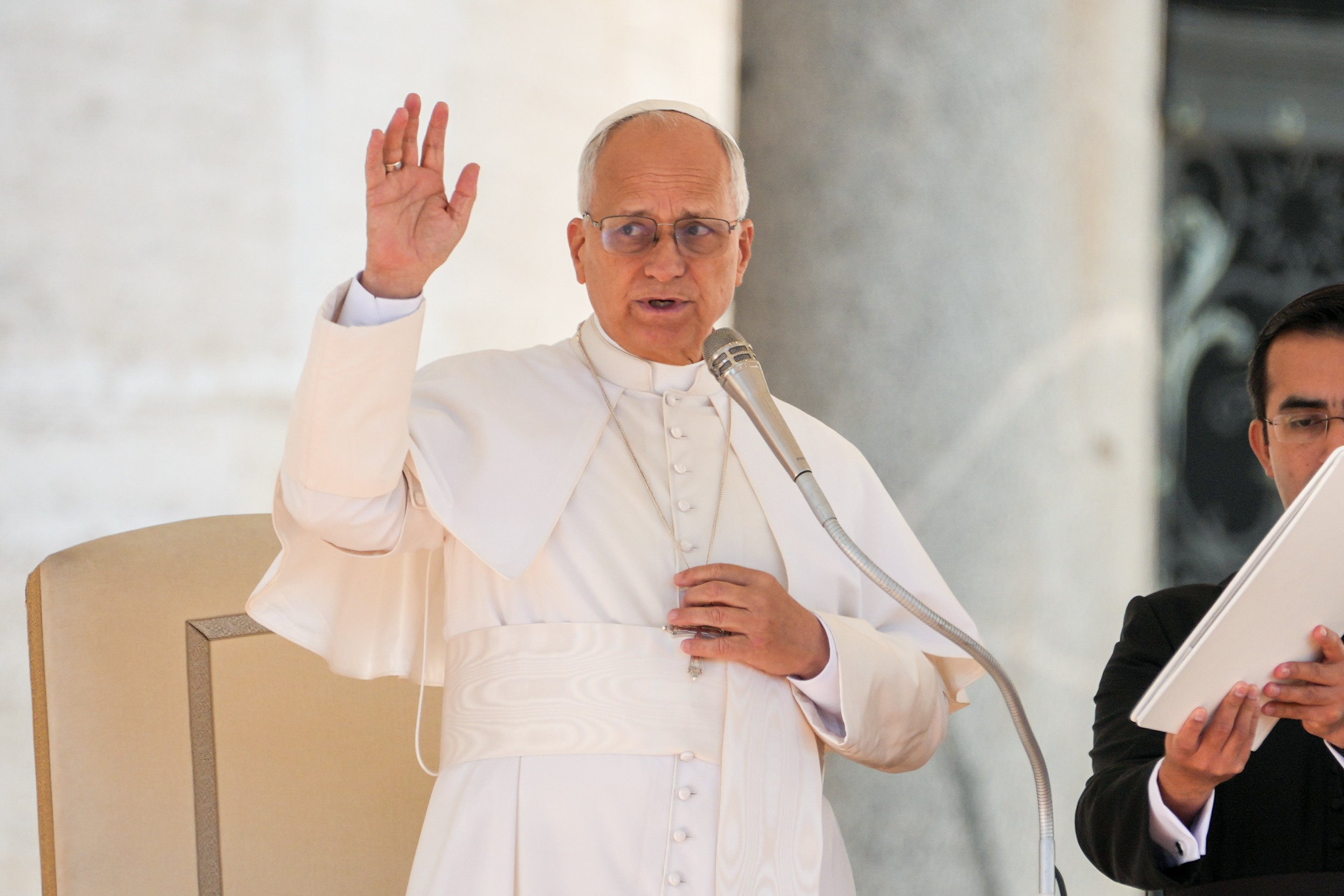April 6, 2018 at 1:53 p.m.
WORD OF FAITH
What a 'covenant' entails
'Baptism...now saves you - not as a removal of dirt from the body, but as an appeal to God for a good conscience, through the resurrection of Jesus Christ, who has gone into heaven....' - I Peter 3:21-22
Both the Hebrew and Christian Scriptures revolve around covenants. They're at the heart of our relationships with God and one another. At times, we even refer to those two biblical collections as the "Old Testament" and the "New Testament" - the "Old Covenant" and the "New Covenant."
Basically, a covenant is a contract between at least two people - an agreement which not only provides the parties with certain benefits, but also sets out specific responsibilities. We can easily surface both these elements in the covenant we most frequently enter today: marriage.
As I often reminded my marriage course students, there's only one reason to enter into such an agreement: because it makes our life a more fulfilling experience.
Our sacred authors were convinced that was also true of the various biblical covenants they narrated. People's lives were always changed and made more interesting and fulfilling whenever they "covenanted" with Yahweh or the risen Jesus.
First covenant
Sunday's Genesis (9:8-15) reading provides us with the first of Yahweh's biblical covenants: a post-flood contract with all human beings. "I will establish my covenant with you, that never again shall all bodily creatures be destroyed by the waters of a flood." Except for prohibiting people from eating meat with its "life blood" still in it, there are no responsibilities for humans to carry out. Yahweh is the principal party in this agreement.
Just as a wedding ring is an outward sign that someone accepts the responsibilities of a marriage covenant, so the rainbow becomes a sign that Yahweh is committed to carrying out His responsibilities to every living creature on earth.
Other covenants will follow, especially the agreement between Abraham and Yahweh in Genesis 15 and the covenant between Yahweh and all the Israelites that took place on Mt. Sinai immediately after the Exodus.
Though we presume Jesus, as a good Jew, was committed to carrying out all the responsibilities which these covenants contained, we also presume that, through His lifetime, He had signed on to another covenant with Yahweh to which he was committed: an agreement to surface God working effectively in His daily life.
This seems to be what He means when He proclaims, "The kingdom of God is at hand!" in Sunday's Gospel (Mark 1:12-15). He's convinced we don't have to read another line of Scripture, say another Rosary or participate in another Eucharist in order to experience God's effective presence in everything we do and everyone we encounter: God's already there.
Our end of bargain
We have just one responsibility: to repent. We're not going to experience God in these ways, people and places unless we first change our value system to mirror Jesus' value system.
That's the meaning of repentance. What He thought important, we must think important; what He put on the periphery of His life, we must put on the periphery of our lives. There's no other way to experience God's presence.
The remainder of the Gospel simply demonstrates Jesus' value system: It outlines how we're to repent. In Jesus' covenant with God, people are more important than rules and regulations; one's wealth and talents are to be used to help others, not ourselves.
He became so one with all those around him that he eventually made their sins, His sins. During the Last Supper narrative in I Corinthians 11, He demands His followers agree to that same covenant by drinking from the eucharistic cup, its outward sign.
Sunday's I Peter (3:18-22) passage refers to another sign of our acceptance of this new agreement: baptism. The normal way we renew that covenant is by receiving from the cup at every Eucharist. Contrary to what I once learned, it's not for "extra credit;" it's one of the essentials of a covenant faith.[[In-content Ad]]
SOCIAL MEDIA
OSV NEWS
- As deal to end shutdown advances, Catholic groups urge action on health insurance costs
- Texans vote overwhelmingly to enshrine parental rights in state constitution
- Supreme Court declines Kim Davis case seeking to overturn same-sex marriage ruling
- ‘Do you love Jesus more than your political opinion?’: Bishop Tyson says the church faces a test
- Vatican says Swiss Guards investigating alleged antisemitic gesture
- Bishop: Survival of Christian communities in Nigeria depends on security, justice
- Pope asks for extra care when using AI in medicine
- Pope holds long meeting with Belgian abuse survivors
- Delegation of top prelates, lay activists gives Brazil church strong presence at COP30
- Pope offers prayers for the Philippines and for peacemakers







Comments:
You must login to comment.